‘Little Boy Brave’ is still battling and inspiring us, five years on
IN 2012, we dubbed Josh Carter the “Little Boy Brave”. Five years later he is still battling the effects of brain cancer and still inspiring us, this time in his recovery from a stroke brought on by radiation.
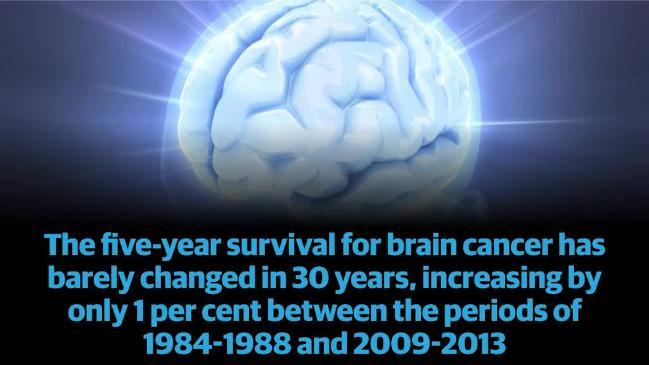
NSW
Don't miss out on the headlines from NSW. Followed categories will be added to My News.
- Herpes treatment could cure deadliest of brain cancers
- Child brain cancer funding loses out to other projects
- Brain cancer nurse climbs mountain to help save kids
- $100m bonanza galvanises fight against brain cancer
JOSH Carter is one of the lucky ones.
You wouldn’t think so as you watch him learning to write with his left hand, a legacy of a stroke in February, which was a complication from the radiation treatment he went through to save him from the brain cancer he has been battling since he was in a nappy.
But only one in five children with brain cancer survive and Josh’s story is one of not just surviving but beating the odds, again and again.
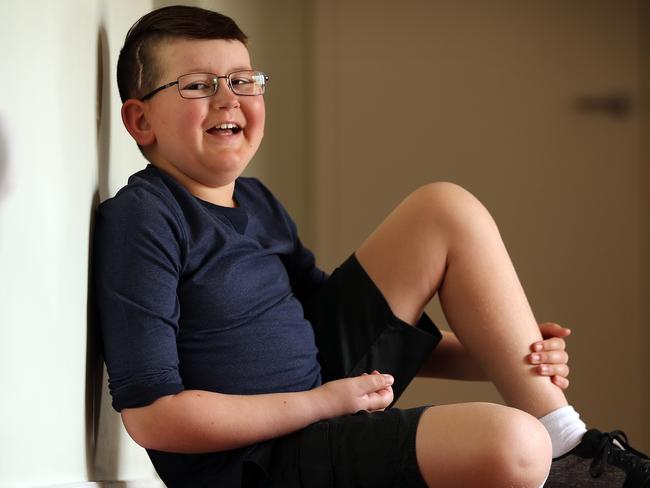
The stroke is but the latest challenge. Doctors said he would lose all right side function, maybe not even walk again but here he is, walking unaided and learning to write again.
He takes it in his stride because, as his dad says: “He’s a warrior”.
The Sunday Telegraph has been following Josh since 2012 and his story inspires and brings you to tears in equal measure.
He forever won hearts when he appeared on our front page, holding his toy rabbit while displaying the angry zigzag scar stretching from ear to ear that was the result of surgery to stop the aggressive tennis-ball-sized tumour lurking behind his left eye.
Josh had missed a huge amount of school.
We watched brain surgeon Brian Owler perform Josh’s third brain surgery to remove the tumour.
But it just kept growing. Josh endured a fourth surgery and again, the tumour came back with a vengeance.
Four rounds of chemotherapy did not stop the beast, so radiation was the last, and only hope. But it came with big risks. It also affects surrounding healthy tissue, damaging the vessels and increasing the risk of stroke.
Parents Glen and Emma were rightly terrified but they had no choice.
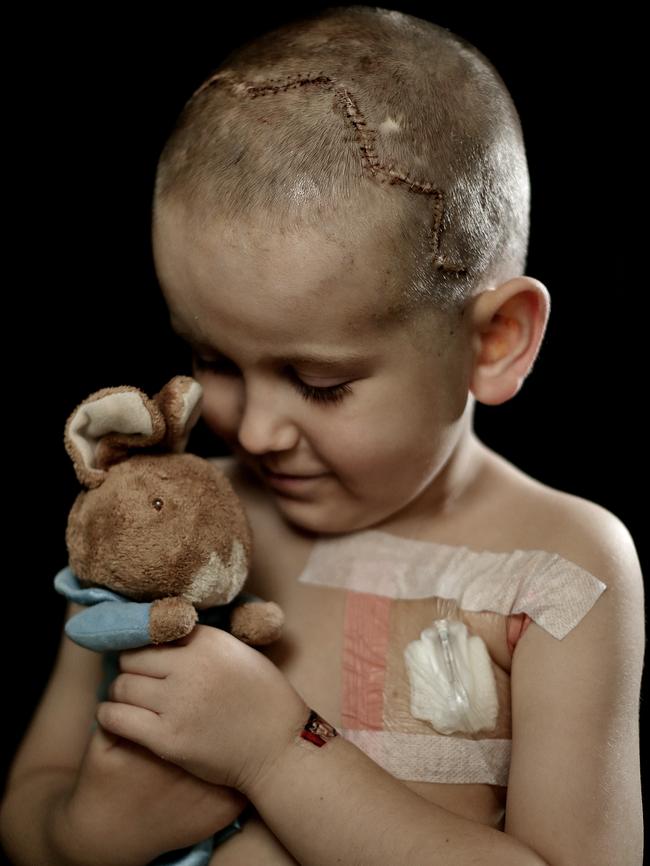
Research into brain cancer is so underfunded and the treatment tools still so limited, the double-edged sword that is a nuclear attack on the brain had to be embraced because the other option was to lose their precious boy.
“I did not want to do the radiation, I was 100 per cent against it, but we were told there was no other option, he had his last surgery in 2012 and it was still growing,” Emma said.
“It’s the last thing you want to do because it kills as much good tissue as it does bad,” Glen added.
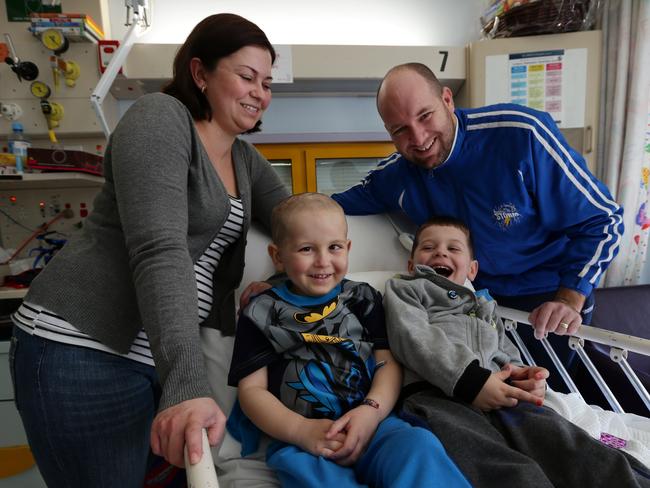
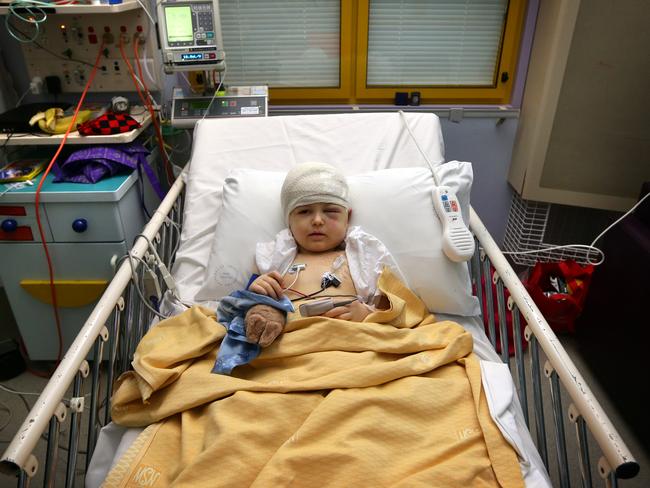
With their backs against the wall in 2013, Josh underwent six weeks of radiation. Miraculously it worked, the tumour has stayed the same size and the family returned to what they hoped would be a normal life.
Josh had missed a huge amount of school but he got back to Holy Spirit Primary School near their St Clair home and was making steady progress.
For three years, life was blessedly quiet.
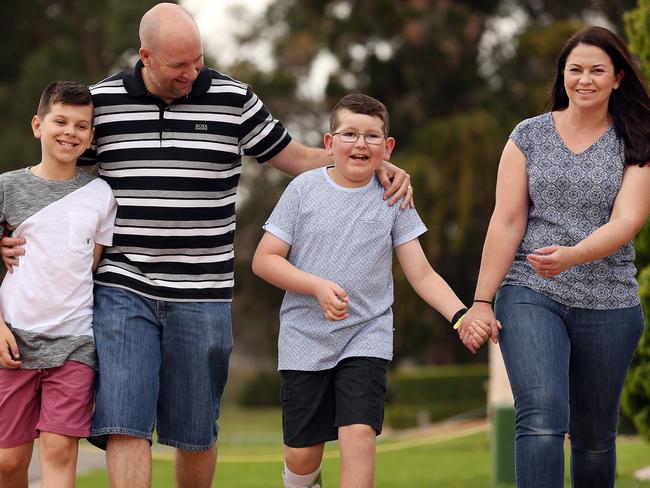
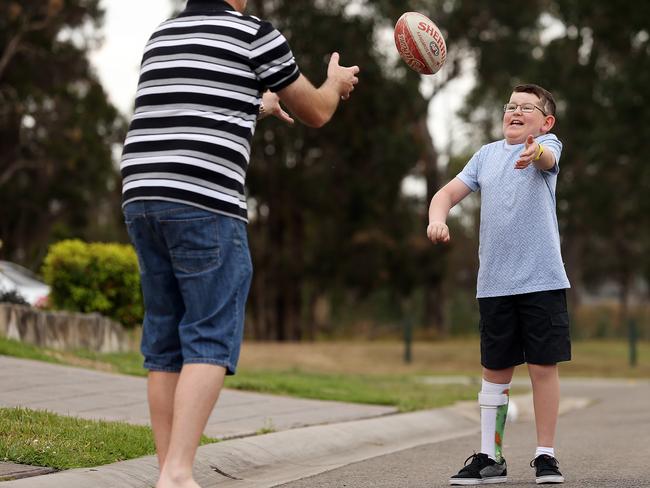
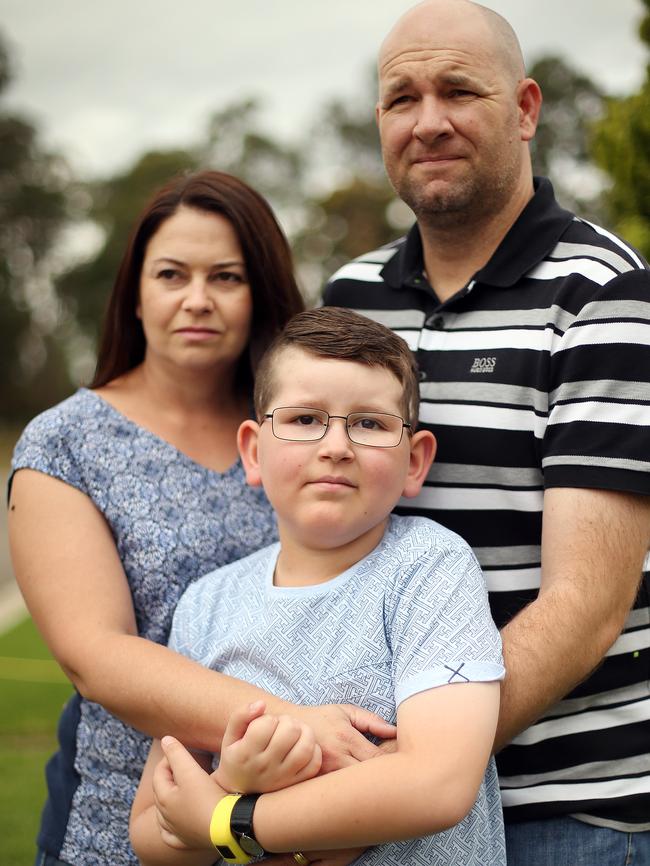
Emma even went back to work for a year but, one Saturday in February, when Glen arrived home from cricket, Josh ran down the hall to see his dad.
“I caught him and then noticed he had lost mobility on his right hand side, his mouth drooped, he was incoherent. We grabbed the ‘go bag’, which is our hospital bag always packed and immediately took him to the hospital,” he said.
It took doctors a long time to locate the area of the stroke and, when they found it, it took five hours to unblock it. The prognosis was not good.
“They said he was very bad, that he would never move his right side again. But in true warrior fashion, after being in bed for eight weeks, he walked on a walking frame,” Glen said.
Emma said her son is an inspiration.
“It’s not fair — it make me feel like some cancers are more worthy.”
“He has not given up, even when it’s really hard, he has given his therapy 100 per cent. He is now walking without any assistance,” she said.
His right hand has been less responsive, so he has taken to writing with his left.
“I think he might have been ambidextrous because he’s taken to writing with his left hand really well,” she said.
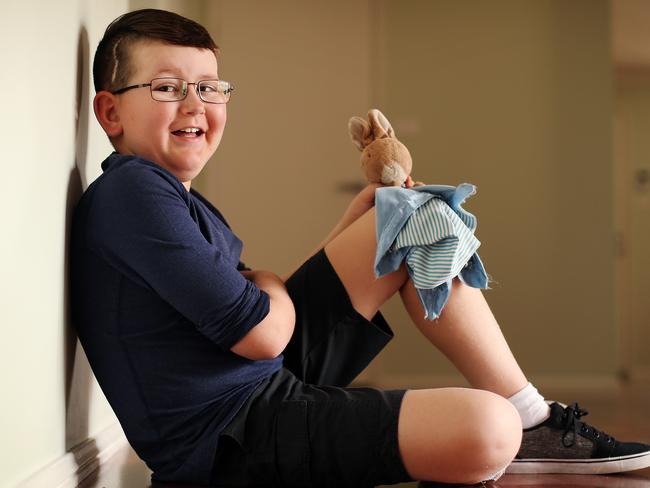
Josh is a survivor but it’s an ongoing battle. Emma gets teary when she thinks of Josh’s friends, the other children he met in hospital that are no longer here.
And she chokes up when thinking of the other cancers that have benefited from the research dollars that have eluded brain cancer.
“It’s not fair — it make me feel like some cancers are more worthy and those who have brain cancer don’t deserve it,” she said.
